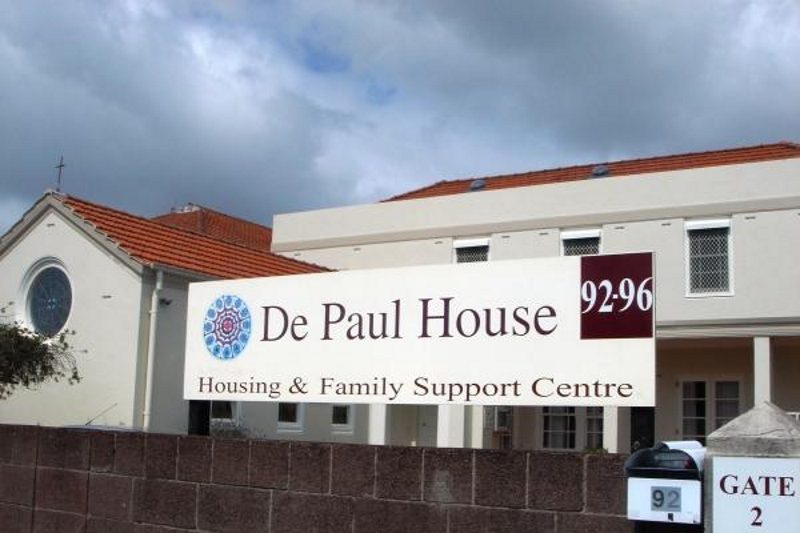The need for emergency housing is expected to rise after the Government’s temporary housing schemes during the pandemic finish.
De Paul House manager Jan Rutledge said there are roughly 200 households on the North Shore (Auckland) that have been housed in motel rooms when the country went into level 4 lockdown.
De Paul House is a Catholic emergency housing and family support organisation.
“Government departments acted with speed but they (homeless families) are in motels or in temporary placements. So, they’ll come back to our wait list once those placements get cancelled or deferred,” she said.
During the lockdown, Ms Rutledge said De Paul House still received 37 calls for assistance with housing.
“Because of lockdown level 4, we couldn’t take people in. Our last client was the day before lockdown level 4. They came to one of our offsite properties,” she said.
“Under level 3, we did take a family that was living in a garage into one of our smaller bedsit units.”
She said this family was living in a garage that got flooded when Auckland had one day of heavy rain.
In level two, De Paul House able to acquire a new house in Glenfield, into which a family living in a car moved on May 15.
One family moved out of DPH under level two. This brought to the fore a new cost that the emergency housing provider hadn’t had before: commercial grade cleaning.
Pandemic impact
Ms Rutledge said when the Government declared level 4 lockdown, the DPH staff and clients had to make decisions on the spot.
“At the beginning of lockdown level 4, we had just over 90 children and 40 adults. Those people had to make really rapid decisions about who they wanted in their bubble,” she said.
“Some of the young mums, in particular, decided they would create a bubble of two smaller families just to give each other the support, which was a sensible and really good solution. They became really good friends throughout this whole lockdown.”
Ms Rutledge said other clients were in the middle of relationship breakdowns which made their situations complicated because of custody arrangements. But the clients managed to sort these arrangements promptly.
“I had been really impressed with the families living with us,” Ms Rutledge said.
The staff had to make rapid decisions as well. The number of staff dropped from 21 to 3, which includes herself.
“We had some staff members with health issues and so we asked them to move straight to home,” Ms Rutledge said.
Their social workers were able to stay in touch with their clients throughout level 4 and 3. The staff had to become familiar with new technology and applications.
Less support
The pandemic hit the emergency housing provider in unforeseen ways.
Ms Rutledge said hiring commercial cleaners is an added, but necessary cost. Previously, cleaning a unit was done by volunteers.
Now, however, they are not sure when the volunteers can come back to help.
“We’ve also not got any volunteers back as yet, because we need to take care of them. A lot of them are retired,” she said.
“And they work in teams. Volunteering should be sociable as well as delivering services for us. They are actually friends that would work in teams to sort linen and sort food. It isn’t safe for them to come back at the moment.”
The suspension of Masses and closure of schools also cut them off from their usual food supply.
“With the Masses closing, that avenue of food donation completely stopped. Usually, Carmel and Rosmini (Colleges) do an end-of-term food bank drive for us. We missed out on that because the lockdown came in so quickly for them as well as for us. So, our food bank was under-resourced right from the beginning,” Ms Rutledge added.
She said because they still do not have volunteers, they are not going to take in donations of clothing simply because there is no one to sort them out.
N Essential workers
Ms Rutledge said what she finds ironic and sad is that most of their clients who have no housing are essential workers.
“These people are essential workers now living in transitional housing because they cannot find or afford permanent housing. But they are out there supporting communities. They are working in supermarkets, working as cleaners or in elder care homes. So they are essential to what’s being provided during Covid -19, but they are living with us, I find that sad to be honest,” she said.
What the health crisis did, Ms Rutledge observed, was make people more compassionate.
“People that previously had never had to apply for benefit, had never had housing risk are feeling what our people have felt all the time. So, it increased the compassion,” she said.
Ms Rutledge said they still have amazing support from their parish communities, particularly St Joseph’s, Takapuna, and St Mary’s, Northcote. She added they received fresh vegetables from Kiwi Harvest.
What they need at the moment, she said, is practical support in terms of canned food, single duvets and financial help.
See www.depaulhouse.org.nz

Reader Interactions